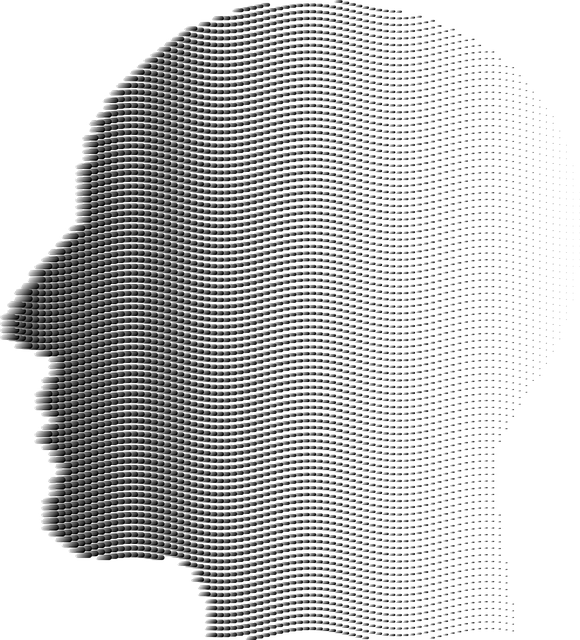Stress Management Workshops: Effective Elderly Anxiety Therapy
The elderly population faces unique mental health challenges, including anxiety driven by social iso…….
Anxiety among older adults is a prevalent and often overlooked mental health concern, affecting millions worldwide. As society ages, understanding and addressing this issue have become increasingly vital. This comprehensive article delves into the realm of “Therapy for Elders Anxiety,” exploring its various facets, from definition to global impact, economic considerations, technological innovations, and future prospects. By the end, readers will grasp the significance of this therapeutic approach and its potential to transform the lives of seniors.
Therapy for Elders Anxiety refers to a specialized form of psychological intervention designed to alleviate anxiety disorders in older adults, typically aged 65 and above. It involves a range of evidence-based therapeutic techniques tailored to address the unique cognitive, emotional, and physical changes associated with aging. The core components include:
The focus on geriatric mental health has evolved over the years. Historically, older adults were often considered less adaptable to therapy due to age-related stereotypes. However, research in the late 20th century highlighted the rising prevalence of anxiety disorders among seniors, leading to a growing recognition of their unique therapeutic needs. This shift marked a significant milestone, prompting the development of specialized anxiety therapies for elders.
Today, “Therapy for Elders Anxiety” is not just a niche practice but an essential component of holistic geriatric care. Its significance lies in:
The impact of Therapy for Elders Anxiety extends beyond national borders, with many countries adopting and adapting these therapeutic approaches to suit their populations’ unique needs. According to a 2022 report by the World Health Organization (WHO), mental health services for older adults are expanding globally, recognizing anxiety as a significant public health concern.
The global geriatric mental health market, including therapy services, is experiencing significant growth. This expansion is driven by several factors:
| Factors Influencing Market Growth | Impact |
|---|---|
| Aging Population | Increasing demand for anxiety therapy as the older demographic expands. |
| Rising Healthcare Expenses | Encouraging early intervention to reduce long-term healthcare costs associated with severe mental health issues. |
| Growing Awareness | Enhanced understanding of geriatric mental health leading to increased service utilization. |
Private equity and venture capital firms are showing interest in this sector, investing in innovative therapy platforms and digital health solutions tailored for seniors. This trend reflects the market’s potential and the desire to improve access and quality of care.
Effective Therapy for Elders Anxiety can yield substantial economic benefits:
Technology plays a pivotal role in modernizing Therapy for Elders Anxiety:
Artificial Intelligence (AI) applications include:
The integration of AI, VR, and digital health platforms holds immense promise for personalized, accessible, and effective therapy. These technologies can:
Government policies and regulatory bodies play a crucial role in shaping the landscape of Therapy for Elders Anxiety:
Legal frameworks impact therapy delivery through:
Despite its benefits, Therapy for Elders Anxiety faces several challenges:
Strategies to address these challenges include:
A community-based anxiety management program in Tokyo targeted older adults with social isolation and mild anxiety disorders. The program combined group therapy sessions, mindfulness workshops, and social activities. Results showed significant reductions in anxiety levels and improvements in overall life satisfaction. This approach highlighted the power of community support in enhancing mental well-being among seniors.
In a rural county in the US, therapists partnered with local libraries to offer free digital therapy sessions. Using videoconferencing, they provided CBT and mindfulness training to older adults. This initiative successfully increased access to therapy, leading to improved mood and reduced loneliness among participants.
A primary care-based program in England integrated mental health services for elderly patients with anxiety and depression. Through collaborative care, general practitioners (GPs) worked with specialized therapists, enabling early identification and effective treatment of anxiety disorders. This model improved patient outcomes and reduced healthcare costs.
The field of Therapy for Elders Anxiety is poised for significant growth and evolution:
To capitalize on these trends:
Therapy for Elders Anxiety is a dynamic and essential component of geriatric care, addressing a critical mental health need in an aging world. This article has explored its definition, global impact, economic considerations, technological advancements, policies, challenges, and successful applications. By understanding these aspects, readers can appreciate the significance of this therapeutic approach and its potential to transform lives. As we look ahead, continued research, innovation, and collaborative efforts are key to unlocking the full potential of Therapy for Elders Anxiety.
Q: What types of anxiety disorders do older adults commonly face?
A: Common anxiety disorders among seniors include generalized anxiety disorder (GAD), social anxiety disorder, panic disorder, and phobias.
Q: How does age differ from younger adults in therapy approaches?
A: Older adults may require more personalized, gentle approaches due to potential cognitive changes. Therapies often focus on practical coping strategies and lifestyle adjustments.
Q: Are there any specific cultural considerations in Therapy for Elders Anxiety?
A: Yes, cultural beliefs and values play a significant role. Therapists must be sensitive to age-related rituals, family dynamics, and cultural expressions of anxiety.
Q: Can technology really replace face-to-face therapy for elders?
A: While technology enhances access, it should complement, not replace, in-person therapy. Remote sessions are effective for some, but many benefit from the personal connection of traditional therapy.
Q: How can I find specialized anxiety therapy for my elderly relative?
A: Start by consulting your primary care physician or a geriatric mental health specialist. They can guide you to local resources and therapists with experience in elder care.

The elderly population faces unique mental health challenges, including anxiety driven by social iso…….